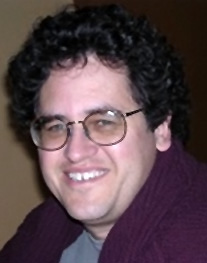
Image source:
John Baez
John Baez is an American mathematician and physicist who wrote about physics and philosophy at the Planck scale.
Quotes by John Baez in Time One
The real numbers are the universe.
Philosophers must take what physicists say about quantum gravity with a grain of salt.
[General relativity] recognizes that spacetime is curved but neglects the uncertainty principle, while [quantum mechanics] takes the uncertainty principle into account but pretends that spacetime is flat. Both theories have been spectacularly successful in their own domain, but neither can be anything more than an approximation to the truth.
Modern theoretical physics is difficult to understand for anyone outside the subject. Can philosophers really contribute to the project of reconciling general relativity and quantum field theory? Or is this a technical business best left to the experts? I would argue for the former. General relativity and quantum field theory are based on some profound insights about the nature of reality. These insights are crystallized in the form of mathematics, but there is a limit on how much progress we can make by just playing around with this mathematics. We need to go back to the insights behind general relativity and quantum field theory, learn to hold them together in our minds, and dare to imagine a world more strange, more beautiful, but ultimately more reasonable than our current theories of it. For this daunting task, philosophical reflection is bound to be of help.
Lee Smolin has argued that ANY sort of background structure is a bad thing in a fundamental theory of physics. Of course, taken to its ultimate limit, this philosophy can lead to problems.
